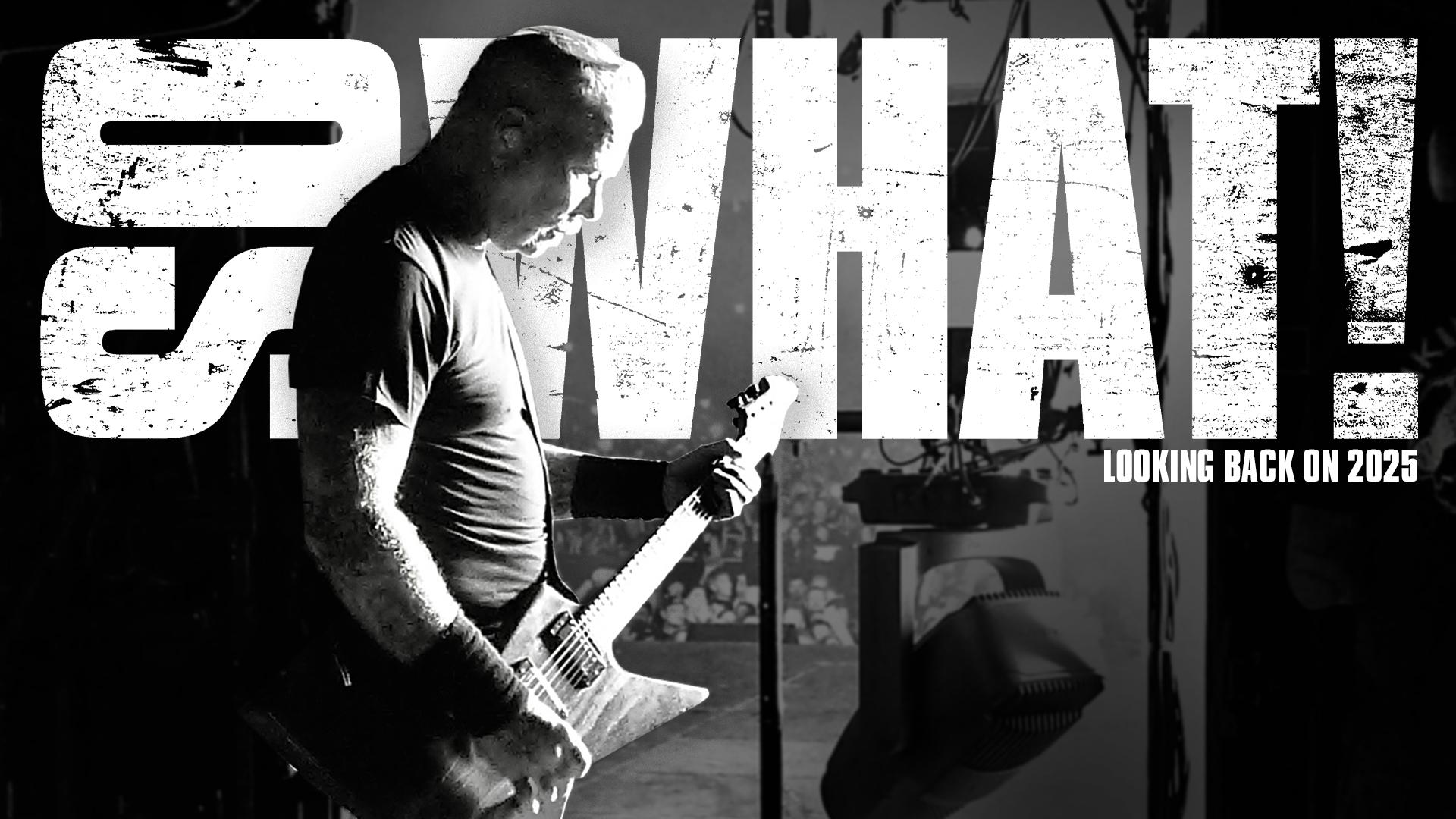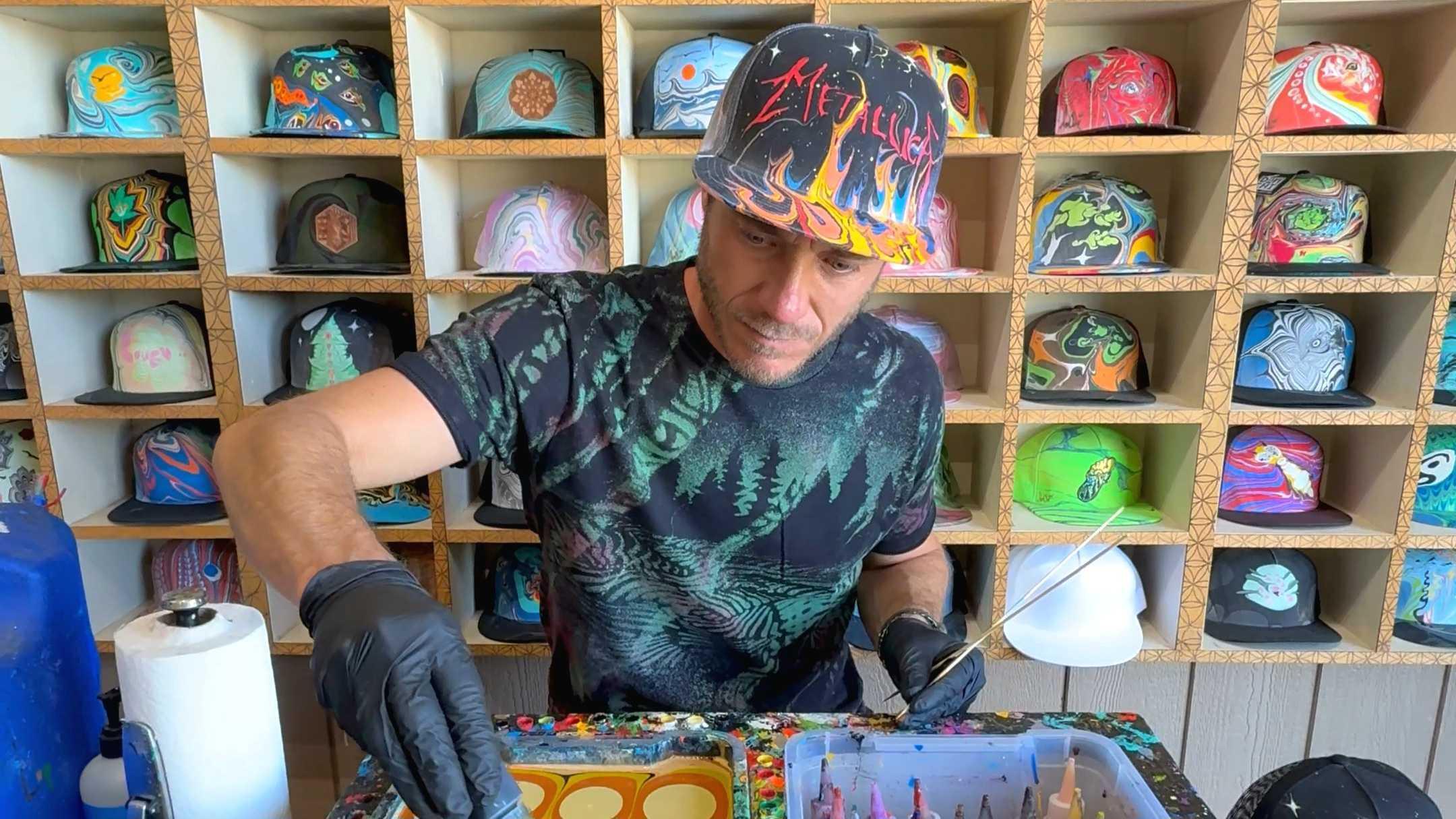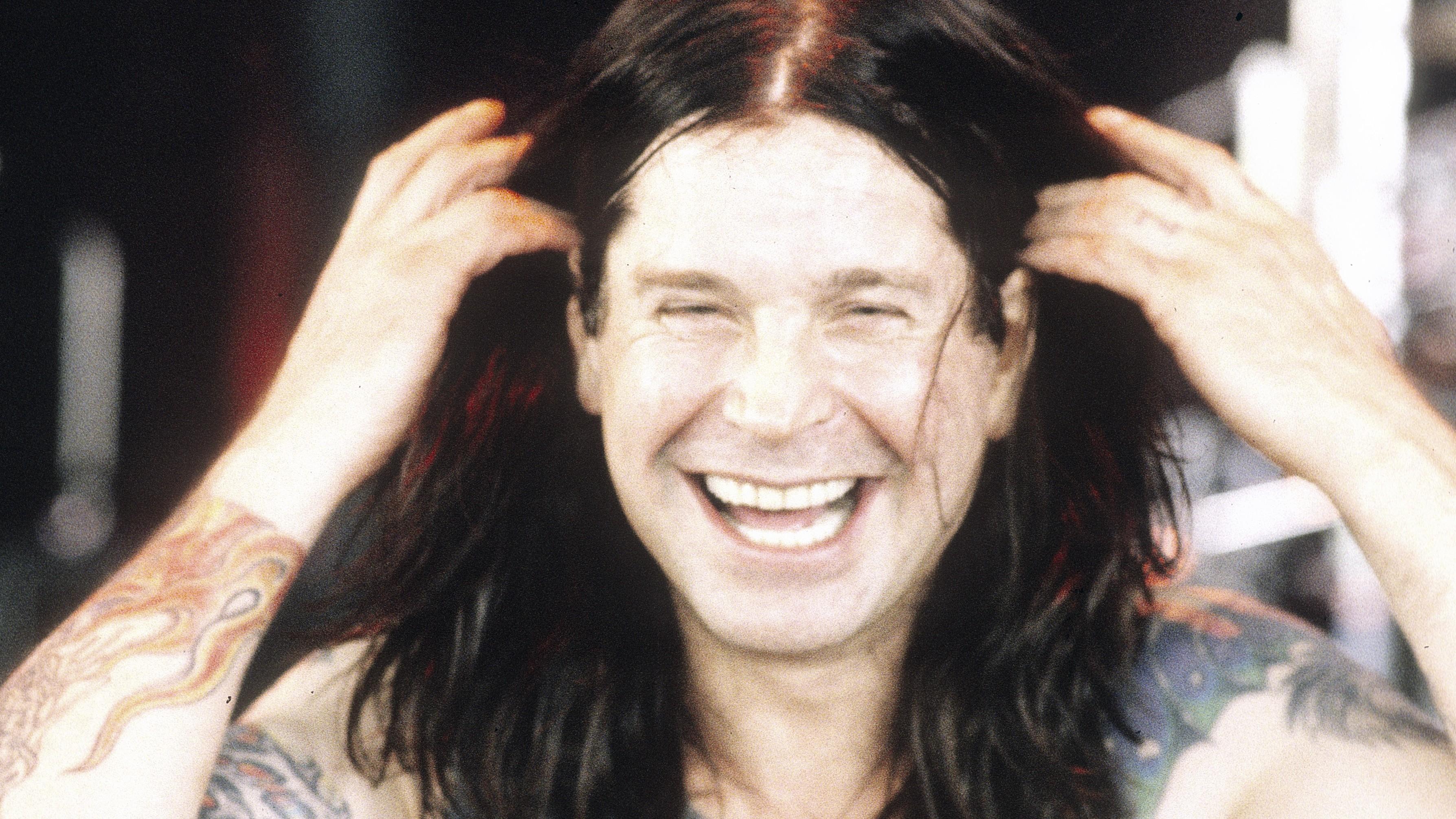
Looking Back on 2025
Some words and photos to look back on the year that was from So What! Editor Steffan Chirazi.
May 19, 2021
One day, Merriam-Webster will need a definition of “good guy,” and it will surely be Direct Relief’s Andrew MacCalla. Steffan Chirazi meets a proper modern-day warrior for good.
I’ll tell you this right now. People bang on about George Clooney, the handsome, warm, friendly altruist, but there’s a new guy in town and he’s worthy of such accolades and respect. Not that Andrew MacCalla, the VP of Emergency Response and New Initiatives at Direct Relief, is looking for that sort of bio line, but that’s the luck of the draw when you work like he works and carry yourself as he does. After 30 minutes on a Zoom call with this guy, I’d trust my kids with him and let him take the dog for a stroll while he’s at it. There is something about MacCalla that just screams “top man,” and that’s before we’ve even started to drill down into his life.
Direct Relief strives to provide essential medical resources around the world to people affected by poverty and humanitarian crises, maintaining projects in 100 countries. MacCalla is not one to sit in an office chair and pound the electronic highways. He wants his boots on the ground, and as such, was in Haiti for two years after the 2010 earthquake as a coordinator of Direct Relief’s gargantuan response. And he has done similar work post-Hurricane Sandy in New York, the tornadoes in Moore, Oklahoma, the Ebola crisis in Sierra Leone and Liberia, the Syrian refugee crisis, typhoons, more hurricanes, earthquakes… you get the message. MacCalla is a bit like Ghostbusters in so much as when there is a disaster of such proportions, who you gonna call? You get it…
He is whip-smart, having studied Philosophy at University of California Santa Barbara, as well having a master’s degree in Public Policy and Management from the University of Melbourne. He is also the co-founder and CEO of Recycle Haiti, LLC, which was formed to deal with Haiti’s plastic waste and large unemployment problem.
More than anything, Andrew MacCalla is driven by nothing but the desire to help. I’m sure he’s read this intro and laughed uncomfortably, hoping it can be edited, because ego is not his chauffeur; conscience, heart, and pure drive to assist others in hardship share the wheel. Trust me when I say this is a man whose work you want to support.
Steffan Chirazi: A couple of early pop quiz questions to start. When did you get a message in your head that this is what you wanted to do? What did you see, what did you read about, what did you experience? What drew you to want to be involved with something that’s so altruistic?
Andrew MacCalla: It was the Asian tsunami of 2004, right around Christmas time, that hit Indonesia, the Philippines, and Thailand. I had some friends who had traveled there, I hadn’t been there yet, and seeing it and reading about that was what made me want to do something in this work. And I literally went – I had graduated from college and spent some time in DC volunteering at the Peace Corps – and showed up at Direct Relief in Santa Barbara right where I finished college, and just said, “Is there any way I can help?” And they were like, “You look strong, you look like you can lift 50 pounds, why don’t you get out in the warehouse?” And so I was working in the warehouse for that whole time as an intern/volunteer, and then I ended up managing the warehouse. I then ended up, in 2010, going down to Haiti when the earthquake happened to set up shop down there.
SC: Okay, I’m gonna dial back even further – from a pop quiz to a cheap psychology question. What put you on this pathway as a child? I am assuming this is lifelong; when most kids were on skateboards or trying to play music, what led you to this direction?
AM: Man, that’s a good question. I attribute it to travel, but I don’t know that that’s a very sufficient answer. My parents took us a lot of places, we traveled a lot as kids, met a lot of interesting people.
SC: When? Get into that.
AM: Well, honestly at the time we were traveling just in the US. They were like, “It’s not worth taking you guys overseas, you won’t appreciate it until you’re in college. They were both teachers. My mom was an English teacher, she’s a librarian and then English teacher, Jean Kilmurry. She taught at a continuation school in LA for the kids that kinda had a hard time with high school, they had a special program. They’d either been in problems with drugs or with the law, but she was great. She loved that program. And then my dad was a coach and a high school principal, Tom MacCalla. He was also a part time deputy sheriff on weekends.
SC: So you did your homework, and you ate your broccoli.
AM: Did my homework, right. They had summers because they were teachers, so we’d travel around, we’d go and meet interesting people, we’d go to camps, we’d go back East. We cruised around the country. And we went to church. I wasn’t a really religious person, but all my friends were in church. We did musicals and I sang in church, and I think it instilled something in me, because then I became a philosophy major. As I said, I wasn’t religious, but I had this real interest in what it means to be a good person, what it means to live in a society with other people, and what our obligations are to other people. Do we have different obligations to people just because we’re closer to some physically in proximity than others? That sort of thing. And I really got interested in this idea of what it means to be a good human being.
SC: Which, I have to speculate, would surely have been also underscored by watching your mom working with kids who had a hard path and who probably, if we’re completely blunt, were the sort of kids that society unfairly judged with the stroke of a pen or the click of a keyboard. You’re seeing early doors that we’re actually all potentially wonderful.
AM: Totally. And she saw, you know, real goodness in all these kids, as you said, that had been kind of tossed away. I mean, a lot were, you know… as happens they had hard lives and hard families and you know, got into drugs or got pregnant or whatever it was, but were still kids really.
SC: I bet you were fun to have a philosophy discussion with as a student though. I’m deadly serious! I can imagine hanging around and having some beers, eating pizza, and talking about real life shit. I mean that’s super cool. Who were your philosophers of point?
AM: So my family history is Scottish. I’m Andrew Duncan MacCalla. My son is Finley Scott and my daughter is Isla. So I take my Scottish heritage pretty seriously! Adam Smith was a big Scottish philosopher, but then I got into John Locke and a contemporary one named Peter Singer. I did my grad school in Australia, and he was a contemporary philosopher who talked a lot about this idea of being a global citizen, and this idea that we now know, intrinsically and intellectually, that there’s people somewhere else that are hungry, starving, hurting. We also know that there’s actually something you can do about that now. Maybe before it was hard to know how to help, but now we know there’s organizations that can help those kids, or help those people in whatever situation they’re in, and we don’t have a lesser obligation to them just because they’re far away from us.
SC: That’s a brilliant point, and we might as well take the expressway, if you will, right into the heart of the subject, which is obviously not just with Direct Relief, but a lot of global charity initiatives. I’m critical of the digital era, even though I use it every day which makes me a filthy hypocrite, but it is much easier these days to make a difference, you can give $20, right?
AM: I think that is the point, right? You can so easily give now. Again, it’s a tough line, because you’re not a bad person if you don’t give your $20, but I think there’s a nuanced line. We now live in a society, as you just said, where you can instantly transfer money, and I’d say very confidently know it’s getting to someone who needs that help in an instant, whether it’s a GoFundMe campaign or a charity that you believe in. I think the quote that hit me the most when I was starting out in this was from a guy named Paul Farmer, who started Partners in Health in Haiti. He said that the problem in the world is the idea that some lives are worth more than others. So if you believe that somehow lives are not equal because of where someone was born, then that means you start treating people differently.
SC: An interesting, and sad to consider, point. I’d like to go back to that $20 donation. In our fifteen or twenty minutes of speaking, I would implicitly trust that every functional dollar – beyond the expenses that you would need to operate a charity – that I would give to you, Andrew at Direct Relief, will go where it meant to. That being said, why don’t we explain where someone’s $20 online donation goes? What is the pathway of that money? Let’s use Direct Relief as the example.
AM: Sure. So first of all, Direct Relief is quite unique in the sense that every dollar you give goes to the cause. We were fortunate enough to have had a gentleman a number of years ago, well, it was unfortunate because he passed away, but when he passed, he left a lot of money for Direct Relief in a trust, and that money pays all the overhead, salaries, and all the stuff people don’t like to pay for. So when someone gives a dollar to Direct Relief it’s not paying for expenses, it’s going directly to the nominated cause. Because look, you can get scammed by charities. They’re not all good, let’s just say that. There are some that spend a lot of money on overhead and marketing money to raise another dollar. But there are others where it very much goes straight to help people. We are one because we have the fortunate position of another way to pay for the stuff people don’t like to pay for. So when people give us a dollar, it literally translates into a sending a bottle of medicine to a kid in Liberia. Let’s say that’s Amoxicillin for a kid who has childhood pneumonia, and it’s a cheap drug, but you can’t get it there, so you’ll die without it. The other path is with disasters, we give just cash grants immediately to places that are affected by the disaster. So in St. Vincent, we helped a local clinic get stocked up on everything they would need to treat patients when they came in from the volcano. It goes right to the place that is impacted.
SC: How do you guard against some, perhaps, unscrupulous entities getting between the cash donations and what is needed?
AM: We never give money to governments at all, we never give money to entities that are political – but it’s complicated because everything’s political these days – so you at least have to be aware of it and go in eyes wide open to how this might get spent or interpreted. So we typically will say, let us know exactly what it is you need. We’ll buy it and send it to you. At some point though, there has to be some level of faith and human trust that people are gonna do right by it.
SC: Even in those moments, it is churlish and ignorant to judge anyone I’d imagine. Life is so much tougher than we have it, most of us have no real comprehension.
AM: It’s the levels of need, or it’s a pyramid, right? And the base is food and water. Most of us in the West are up here [reaches high]. Are we happy? Are we fulfilled? But when you’re left operating at, “Do I have food and water?” Well, you can see we live in a luxurious world. And sometimes, just to get to that base of the pyramid, let alone think of climbing to the top, is beyond what we can imagine. So we can’t quite understand how people act when they’re operating at the base level, the “How am I gonna feed myself and how am I gonna get water?” level. When you’re at that level, all of your decisions are a little bit foreign to us. We’re like, “Whoa, can’t you see that that’s maybe not in your best interest down the line?” But you simply can’t operate at that level if you’re looking for food.
SC: I’m gonna guess that you’re never properly satisfied, because this is not work that’s about “satisfaction,” per se, it’s about doing. Am I right?
AM: That’s right. And you can never do enough. There’s always gonna be need, and you always feel you can do more. I have that in my own mind. On the one hand, I should be spending more time with my family. But other side of it is that I have this weird position where if I work more, it literally translates into helping more people.
SC: How do you hit those balances? Because they’re important balances to hit. Still learning?
AM: I don’t know if I’ve nailed it. I mean, what I can say that my kids, they’re six and nine, is that they now see the world like I see it; one very short story. When my daughter was two and a half, we couldn’t get her to give up her pacifier. We had all these tricks, crazy stuff, and they weren’t really working. And then one day, in her own two-and-a-half-year-old mind, knowing what I do, she actually piled ’em all up, handed ’em to me, and was like, “Dad, I want you to have these. I know that someone else probably needs these now more than I do.” So she was like taking in what, at her age, was a pretty like elevated concept.
SC: I think it is fair to say that the world can project a cruelty and negativity that both seem relentless and media driven. Do your experiences with Direct Relief leave you seeing more positives in humanity?
AM: What I get to see is in the worst times of people’s lives, no matter where it is, 100% of the time there are more people out there who have come to help than there are people who are asking for help. There’s always a desire to go and help your neighbor, or even somebody you don’t even know, and I think that says something about us as humans. I think I get to see the best of our species, often in a time that you’d think would be the worst. And I think that’s important to remember, because deep down I believe when it comes to it, we all are way more giving than we are asking.
SC: So true, so true. And finally, it would be rude not to ask if you’re a Metallica fan?
AM: I am a fan. Big fan. The Black Album was one of my first CDs, for sure. You know, that was around the time I was listening to Metallica and Soundgarden, some Nirvana, some Pearl Jam, that was the nucleus of that era for me. And now I’ve become a musician! Very, very, very amateur, but one of my favorite things to do so is to be around people and playing music, escaping, zoning out, and clearing my mind.

Some words and photos to look back on the year that was from So What! Editor Steffan Chirazi.

Dominic Padua (aka Dom Chi) does many things very well, including the art of marbling. Steffan Chirazi visits his Sebastopol, CA, studio to learn more.

What you are diving into here is my personal journal with regards to the Back to the Beginning extravaganza. Much of it was written off-the-cuff, and the sheer magnitude of the event means that even now there are still pieces of “thought” swirling in the ether and making brain fall by the hour. These recollections, emotions, and observations are shared reflectively over three separate entries after the event and are split between an initial “post-event download” and then a more chronological reflection on our time in Birmingham…